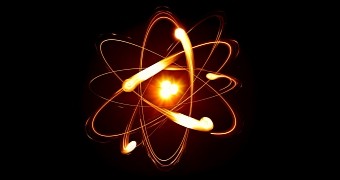Just in case there are some who still doubt that whatever we can do nature can do better, it turns out that, about 2 billion years ago, a natural nuclear reactor kicked into gear in Africa.
The natural nuclear reactor formed in a region dubbed Oklo, which is located not far from the town of Franceville, in Gabon's Haut-Ogooué province, and went on to produce energy for eons to come.
As explained in the video below, the natural reactor came into being because environmental conditions in the Oklo region met the criteria needed for energy to be produced from uranium deposits.
Thus, the region held considerable amounts of uranium-235, some extra neutrons to split it, and just enough ground water to control the reaction and make sure that things didn't go haywire.
Evidence indicates that this natural nuclear reactor remained up and running for several hundreds of thousands of years, during which time it consumed about 200 kilograms (440 pounds) of uranium-235.
It is estimated that, in its heydays, the reactor had an average energy output of about 100 kilowatts, which is more than enough to power roughly one hundred washing machines.
Scientists suspect that Africa's natural nuclear reactor stopped producing energy when the region was left with too little uranium-235 deposits for nuclear reactions to continue taking place.

 14 DAY TRIAL //
14 DAY TRIAL // 